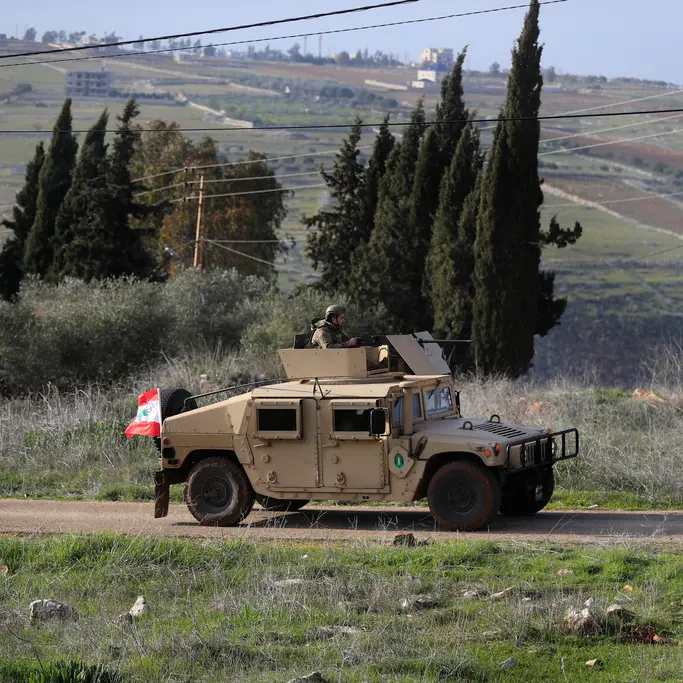In a major show of support, Qatar has announced a $60 million financial aid package and the delivery of 162 military vehicles to Lebanon’s armed forces. This assistance comes at a crucial time, as the Lebanese army struggles to maintain stability and rebuild in the aftermath of the recent conflict between Hezbollah and Israel.
The aid was confirmed during Lebanese President Joseph Aoun’s official visit to Doha, where he met with the Emir of Qatar, Sheikh Tamim bin Hamad Al Thani. The two leaders discussed Lebanon’s current crisis, the army’s needs, and broader plans for national recovery and security. Qatar’s generous donation highlights its continued role in supporting Lebanon during difficult times.
Lebanon has been facing one of the worst economic collapses in its history. The Lebanese army, once considered one of the few functioning institutions in the country, has suffered deeply from the country’s financial meltdown. Salaries for soldiers have lost their value due to hyperinflation, and many members of the military have left the force due to unlivable conditions. With the army’s resources stretched thin, Qatar’s financial and logistical support offers a lifeline.
A Lifeline for Lebanon’s Struggling Armed Forces
The $60 million aid is expected to help cover the salaries of army personnel and boost operational capacity. Lebanon’s defense institutions have struggled to function as the state battles multiple crises — including political deadlock, power shortages, and widespread poverty. The Lebanese pound has lost over 90% of its value since 2019, drastically reducing the purchasing power of state employees, including soldiers.
Qatar’s support is not new. Over the past few years, especially since 2019, the Gulf nation has donated food, fuel, and monetary aid to the Lebanese army. This latest contribution, however, is its largest yet and signifies deepening strategic ties between the two nations.

In addition to the financial assistance, Qatar will also deliver over 160 military vehicles to the Lebanese armed forces. These vehicles will strengthen the army’s ability to secure the country’s borders, conduct internal operations, and respond to national emergencies. The vehicles are expected to be delivered in phases, with the first shipment arriving soon.
Regional Tensions and the Role of the Lebanese Army
Lebanon’s army has been trying to maintain neutrality and national cohesion, especially during politically and militarily sensitive periods. The recent conflict between Hezbollah and Israel, which lasted over a year and resulted in thousands of deaths and billions of dollars in damage, has only increased the pressure on Lebanon’s security institutions.
Hezbollah, a powerful Iran-backed militia and political party based in Lebanon, has long been a source of internal tension. Its armed presence and actions against Israel have drawn international scrutiny and caused repeated armed escalations along the southern border. Though Hezbollah claims its resistance is aimed at defending Lebanon, many citizens and political leaders argue that its military wing operates outside the control of the state, weakening national unity.
President Joseph Aoun addressed these concerns during his Qatar visit, emphasizing that Hezbollah’s weapons should be addressed through national dialogue, not through force or foreign pressure. He stressed that Lebanon must remain committed to its sovereignty and independence, calling for political consensus and long-term solutions instead of short-term fixes.
Qatar’s Strategic Vision in the Region
Qatar’s aid to Lebanon reflects its growing role as a diplomatic and humanitarian player in the Middle East. Over the past decade, Qatar has increased its international outreach by mediating regional conflicts, funding reconstruction projects, and supporting struggling economies.
By investing in the Lebanese army, Qatar is making a clear statement: it supports state institutions and seeks to strengthen Lebanon’s central government, rather than allowing non-state actors like Hezbollah to dominate the national stage. This also sends a message to international partners that Lebanon’s stability is a shared responsibility.
Qatari officials have repeatedly called on the international community to step up and assist Lebanon in its time of need. With a weak central government and ongoing divisions among political parties, foreign aid and mediation remain essential to prevent further collapse.
Looking Ahead: Challenges and Hope
Lebanon’s road to recovery remains long and uncertain. The country is still struggling with massive debt, political deadlock, a lack of basic services, and a refugee crisis that has put enormous strain on its infrastructure. Meanwhile, border tensions with Israel continue to flare up periodically, keeping the region on edge.
However, the aid from Qatar offers a glimmer of hope. Strengthening the Lebanese army could help bring back a sense of security and national pride. For many citizens, the army remains one of the few institutions they can trust, especially in a country where political corruption and economic mismanagement have eroded confidence in leadership.
The next steps will depend heavily on how Lebanon’s leaders use the aid and whether they can come together to form a functional government capable of driving reforms. Qatar has done its part, for now, by offering both financial and military support. The question remains: will Lebanon’s political system rise to the occasion?
As the situation unfolds, all eyes will be on Lebanon and its neighbors. Regional powers will continue to play key roles, but internal unity, transparency, and strong institutions will ultimately determine the country’s future.
Afghanistan A vs Sri Lanka A – Live Streaming, Match Preview & Full Details



